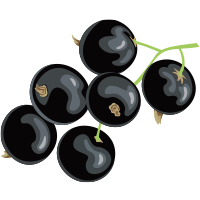The majority of the Carignan grapes used in this “Vieilles Vignes” come from 50-year-old vines grown along the Canal du Midi near the town of Narbonne, which gives the wine great concentration and fullness. The rest is sourced partly in the Minervois area, where the clay and calcareous subsoil produces tannin-rich and aromatic wines, partly in Corbières, where some high-lying parcels give freshness, crispness and fruity character.
1/3 of the grapes are handpicked and vinified in whole bunches to prioritize freshness and fruit nuances, while 2/3 is vinified traditionally with destemming, gentle crushing and a long fermentation in a combination of concrete and steel tanks. After pressing, the wine matures for approx. 6-8 months, with 80% of the wine in new and used wooden barrels and the rest in steel tanks.
The wine has a nice, dark, ruby red color with a violet edge. In the scent you will find delicious, juicy shades of dark berries such as blackberries and blackcurrants, but also spicy notes of coffee, dark chocolate and tobacco. The taste is dry and structured with good tannin and a character of bitter chocolate and English licorice. It ends with good freshness and charm. Serve it with grilled meat, stews with pork, beef or lamb. Also try it for a dark chocolate cake.
It is Laurent Delaunay and his company, Badet Clément, who are behind Abbotts & Delaunay in Languedoc. He himself is the 5th generation in the Bourgogne Delaunay family, and thus today also owns the Bourgogne company Edouard Delaunay. Badet Clément actually started by advising wine producers in Bourgogne, Languedoc, Rhône and Provence and later produced wines in the same areas himself. In 2005, he had the opportunity to take over the wine company Abbotts and the associated property, “La Métairie d’Alon”, located in Magrie, southwest of the city of Carcassonne in the high-lying part of the Aude valley (Limoux). The company had been founded in 1996 by the Australian woman, Nerida Abbotts, and the name of the company then became Abbotts & Delaunay. Laurent Delaunay and the team behind Badet Clément have over the years gained extensive experience with wine production in South-East France (not least in Languedoc) and are therefore today a highly regarded company in the area.
The series “Métayage” (organic wines), “Les Fleurs & Fruits Sauvages” and “Les Petites Cuvées” from Abbotts & Delaunay are produced on plots which are partly located on the property where the wines are vinified, La Métairie d’Alon (organically grown) and partly in the Limoux area and at the foot of the Hérault mountains north of Béziers. The property’s original rather dominant “Australian style” has gradually undergone a change towards a more “Languedoc-true style”. When it comes to the wines, however, they have an unmistakable and rather charming touch from Burgundy in them – not least of course in the wines based on Chardonnay and Pinot Noir. It is the fresh, elegant and complex style that is prioritized here!
Languedoc is located in the south-east of France, with the Mediterranean Sea as its neighbour. The area is one of the most important wine regions in France in terms of production quantity and size, and in recent years it has undergone a fantastic development in terms of quality. A new generation of wine producers has been adept at exploiting the opportunities that new wine regulations have provided, i.a. with the use of better grape varieties, lower yields and more adapted vinification techniques.
In addition to classic AOC/AOP districts such as Côteaux du Languedoc/Languedoc, Corbières, Fitou, Minervois and Faugères, Languedoc has long been known for no less than approx. 60 protected land areas, so-called IGP districts (Indication Geographique Protegée). They were previously known as Vin de Pays (VdP – country wines), but in 2009 they were changed to IGP, at the same time as opening up the possibility of writing on the label which grape varieties are used in the wine. IGP Pays d’Oc is a so-called “regional IGP” and covers the whole of Languedoc (Hérault, Aude and Gard). Good producers know how to utilize soil, climate, grape varieties and modern equipment to make excellent and characterful wines – often at reasonable prices.



